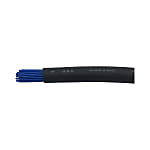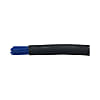(!)Due to Microsoft's end of support for Internet Explorer 11 on 15/06/2022, this site does not support the recommended environment.
50,000 Stock items for Same Day Ship Out.
All Categories
Categories
- Automation Components
A wide variety of standard and configurable components for factory automation engineers in industries such as automotive, semiconductor, packaging, medical and many more.
- Linear Motion
- Rotary Motion
- Connecting Parts
- Rotary Power Transmission
- Motors
- Conveyors & Material Handling
- Locating, Positioning, Jigs & Fixtures
- Inspection
- Sensors, Switches
- Pneumatics, Hydraulics
- Vacuum Components
- Hydraulic Equipment
- Discharging / Painting Devices
- Pipe, Tubes, Hoses & Fittings
- Modules, Units
- Heaters, Temperature Control
- Framing & Support
- Casters, Leveling Mounts, Posts
- Doors, Cabinet Hardware
- Springs, Shock Absorbers
- Adjusting, Fastening, Magnets
- Antivibration, Soundproofing Materials, Safety Products
- Fasteners
A good selection of accessories such as screws, bolts, washers and nuts that you may need for your daily engineering usage.
- Materials
Browse industrial materials ranging from heat insulating plates, sponges, to metal and plastic materials in different sizes to meet your various applications.
- Wiring Components
A wide variety of wiring parts for connecting and protecting control and PC parts including Connectors, Cables, Electric Wires, Crimping Terminals and more.
- LAN Cables / Industrial Network Cables
- Cables by Application
- Cables with Connectors
- RS232 / Personal Computers / AV Cables
- Wires/Cables
- Connectors (General Purpose)
- Crimp Terminals
- Zip Ties
- Cable Glands
- Cable Bushings/Clips/Stickers
- Screws/Spacers
- Cable Accessories
- Tubes
- Protection Tubes
- Ducts/Wiremolds
- General Purpose Tools
- Dedicated Tools
- Soldering Supplies
- Electrical & Controls
A wide variety of controls and PC parts for electrical engineers including Controls, Powers, PC parts and more.
- Cutting Tools
A wide variety of cutting tools for many uses and work materials including End Mills, Drills, Cutters, Reamers, Turning Tools and more.
- Carbide End Mills
- HSS End Mills
- Milling Cutter Inserts/Holders
- Customized Straight Blade End Mills
- Dedicated Cutters
- Turning Tools
- Drill Bits
- Screw-Hole-Related Tools
- Reamers
- Chamfering / Centering Tools
- Fixtures Related to Cutting Tools
- Step Drills
- Hole Saws
- Clean Key Cutters
- Core Drills (Tip Tools)
- Magnetic Drilling Machine Cutters
- Drill Bits for Electric Drilling Machines
- Woodworking Drill Cutters
- Drills for Concrete
- Processing Tools
A wide variety of tools and supplies used in processing including Machine Tools, Measurement Tools, Grinding and Polishing Supplies and more.
- Material Handling & Storage
A wide variety of goods used in shipment, material handling and warehouse including Tape supplies, Stretch film, Truck, Shelf, Crane and more.
- Tape Supplies
- Cushioning Materials
- Stretch Films
- Cardboard
- Plastic Bags
- PP Bands
- Magic Tapes / Tying Belts
- Rubber Bands
- Strings/Ropes
- Cable Ties
- Tags
- Labelers
- Unpacking Cutters
- Packing Support Equipment
- Cloth Sheets for Packing
- Conveyance/Dolly Carts
- Tool Wagons
- Tool Cabinets / Container Racks
- Lifters / Hand Pallets
- Container Pallets
- Storage Supplies
- Shelves/Racks
- Work Benches
- Suspended Clamps/Suspended Belts
- Jack Winches
- Chain Block Cranes
- Bottles/Containers
- Bicycle Storage Area
- Safety & General Supplies
A large variety of goods for every kind of factories and offices including Protection items, Cleaning supplies, sanitations, office supplies and more.
- Lab & Clean Room Supplies
A large variety of items used in R&D and Clean Room including research Equipment, Laboratory Essentials, Analysis Supplies, Clean Environment-Related Equipment and more.
- Press Die Components
Choose from thousands of standard stamping die components including Punch & Die, Gas Springs, Guide Components, Coil Springs and many more.
- Plastic Mold Components
Browse our wide variety of mold components including Ejector Pins, Sleeves, Leader Components, Sprue Bushings and many more.
- Ejector Pins
- Sleeves, Center Pins
- Core Pins
- Sprue bushings, Gates, and other components
- Date Mark Inserts, Recycle Mark Inserts, Pins with Gas Vent
- Undercut, Plates
- Leader Components, Components for Ejector Space
- Mold Opening Controllers
- Cooling or Heating Components
- Accessories, Others
- Components of Large Mold, Die Casting
- Injection Molding Components
Browse our injection molding components including Heating Items, Couplers, Hoses and more.
- Purging Agent
- Injection Molding Machine Products
- Accessories of Equipment
- Auxiliary Equipment
- Air Nippers
- Air Cylinders
- Air Chuck for Runner
- Chuck Board Components
- Frames
- Suction Components
- Parallel Air Chuck
- Special Air Chuck
- Chemical for Injection Molding
- Mold Maintenance
- Heating Items
- Heat Insulation Sheets
- Couplers, Plugs, One-touch Joints
- Tubes, Hoses, Peripheral Components
Search by Application
Brands
- Scheduled Maintenance Notice: This site will be unavailable due to scheduled maintenance from 9:00 24/11/2024 to 7:00 (MYT) 25/11/2024. We apologize for the inconvenience.
- Notice of End of Sales for Economy Series Pneumatic Equipment Category. More information.
- Please note that E-Invoice will be sent to our customers by email. For more information, please read News.
Power Cables(Rated Voltage:For Low Current Circuits)
| Days to Ship |
|
|---|
-

KURAMO ELECTRIC
- Power cable VCTF 33X series from KURAMO ELECTRIC.
- Oil-resistant flexible cable suitable for wiring between devices / on switch boards / in oily environments.
- The number of cores can be selected up to 40 cores.
- The Insulation body materials are made of PVC.
- Operating Temperature Range of power cable is -30 ~ 60°C.
- Customize the length of the power cable, with options up to 100 meters available.
- The bending radius is 4 times or more of the cable diameter. (Fixed)Standard Price: MYR 7.51- Days to Ship: 6 Day(s) or more
| Brand |
|---|
| Product Series |
| Days to Ship |
| Conductor Cross Section(mm2) |
| Number Of Cores(Core) |
| AWG size(AWG) |
| Logarithm |
| Rated Voltage |
| Shield |
| Sheath (outer coating) color |
| Grounding Wire |
| Overall Length(m) |
| Properties |
| Finished outer diameter(mm) |
| Representative Standard |
| Sheath (outer coating) material |
| Insulation body materials |
| Cable Standard |
| Number of Contacts(core) |
| Conductor Cross-Sectional Area(mm2) |
| AWG Size(AWG) |
| Rated Voltage |
| Shield |
| Safety Standards |
| Overall Length(m) |
| Properties |
| Sheath Color |
| Ground Wires |
| Sheath Material |
| Finish Outer Diameter(mm) |
| Insulator Material |
| Brand | KURAMO ELECTRIC |
|---|---|
| Product Series | |
| Days to Ship | 6 Day(s) or more |
| Conductor Cross Section(mm2) | 0.5 |
| Number Of Cores(Core) | 2 ~ 40 |
| AWG size(AWG) | - |
| Logarithm | - |
| Rated Voltage | For Low Current Circuits |
| Shield | NA |
| Sheath (outer coating) color | Black |
| Grounding Wire | NA |
| Overall Length(m) | 1 ~ 100 |
| Properties | Oil Resistance |
| Finished outer diameter(mm) | 5.8 ~ 17 |
| Representative Standard | - |
| Sheath (outer coating) material | PVC (Polyvinyl Chloride) |
| Insulation body materials | PVC (Polyvinyl Chloride) |
| Cable Standard | - |
| Number of Contacts(core) | - |
| Conductor Cross-Sectional Area(mm2) | - |
| AWG Size(AWG) | - |
| Rated Voltage | - |
| Shield | - |
| Safety Standards | - |
| Overall Length(m) | - |
| Properties | - |
| Sheath Color | - |
| Ground Wires | - |
| Sheath Material | - |
| Finish Outer Diameter(mm) | - |
| Insulator Material | - |
Loading...
Configure
Specification/Dimensions
-
Conductor Cross Section(mm2)
-
Number Of Cores(Core)
-
AWG size(AWG)
-
Logarithm
-
Rated Voltage
-
Shield
-
Sheath (outer coating) color
- Black
- Gray
- Green
- Blue
- Other
-
Grounding Wire
- Colored YG (yellow/green)
- GY (green/yellow) colored
- NA
-
Overall Length(m)
-
Properties
-
Finished outer diameter(mm)
-
Representative Standard
-
Sheath (outer coating) material
- PVC (Polyvinyl Chloride)
- Rubber-Based
- Other
-
Insulation body materials
- PVC (Polyvinyl Chloride)
- Polyethylene-Based
- Other
-
Cable Standard
-
Number of Contacts(core)
-
Conductor Cross-Sectional Area(mm2)
-
AWG Size(AWG)
-
Rated Voltage
-
Shield
-
Safety Standards
-
Overall Length(m)
-
Properties
-
Sheath Color
- Black
- Blue
-
Ground Wires
- YG (Yellow/Green) Colored
- GY (Green/Yellow) Colored
- N/A
-
Sheath Material
- PVC (Polyvinyl Chloride)
- Other
-
Finish Outer Diameter(mm)
- 6
- 6.3
- 6.9
- 7.5
- 9
- 9.2
- 9.4
- 9.5
- 9.9
- 10.4
- 10.5
- 10.7
- 10.8
- 11
- 11.2
- 11.3
- 11.4
- 11.5
- 11.6
- 11.7
- 11.8
- 11.9
- 12
- 12.2
- 12.4
- 12.5
- 12.6
- 12.7
- 12.9
- 13
- 13.1
- 13.2
- 13.4
- 13.5
- 13.7
- 13.8
- 14
- 14.1
- 14.2
- 14.3
- 14.4
- 14.5
- 14.8
- 14.9
- 15
- 15.1
- 15.2
- 15.5
- 15.6
- 15.7
- 15.9
- 16
- 16.3
- 16.4
- 16.5
- 16.6
- 16.8
- 17
- 17.1
- 17.2
- 17.4
- 17.6
- 18
- 18.1
- 18.4
- 18.9
- 19.3
- 19.7
- 24.1
-
Insulator Material
- PVC (Polyvinyl Chloride)
- Polyeste-Based
- Other
Narrow search by specifying Manufacturer
-
- MISUMI (0)
- KURAMO ELECTRIC (1)
- FUJI ELECTRIC WIRE INDUSTRIES (0)
- MITSUBOSHI (CABLE) (0)
- CHUGOKU (0)
- FUJIKURA DIA CABLE (0)
- TAIYO CABLETEC (0)
- LAPP (0)
CAD
-
- 2D
- 3D




How can we improve?
How can we improve?
While we are not able to respond directly to comments submitted in this form, the information will be reviewed for future improvement.
Customer Privacy Policy
Thank you for your cooperation.
While we are not able to respond directly to comments submitted in this form, the information will be reviewed for future improvement.
Please use the inquiry form.
Customer Privacy Policy